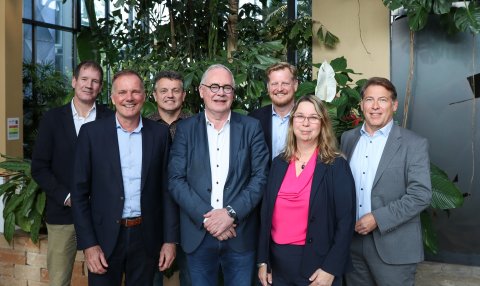
Technology and information management are playing an increasingly important role in facility and real estate management - but what challenges will we face in the coming years? What are the developments, how influential are they and how can we exploit them to manage our operations more effectively? In this blog I will try to answer these questions.
Demographic developments - the ideal workplace
Demographic developments lead to more diversity in the workplace. This is due, among other things, to the recruitment of young talent, the increase in the retirement age and a multicultural working environment. The increasing shortage of skilled workers on the labour market - and the resulting "war for talent" - also plays an important role. Employees today make different demands on their employer to what they did in the past. They want to develop further and attach more and more importance to a good balance between work and private life. If their wishes are not fulfilled, a quick change of job is not unlikely. Location also becomes a decisive factor in finding the right talent. This is why it is becoming increasingly important for companies that want to retain their workforce to meet these requirements.
Economic Developments - Flexibility critical to a competitive business strategy
Social, geopolitical and economic trends have a major influence on business strategy. Think about challenges like Brexit, economic factors like import duties or social issues such as competitive labour markets. Globalisation also plays an important role: Competition takes place on a worldwide scale, which means that continuous innovation is necessary not only for profit, but also to maintain a strong competitive position. Not every organisation is flexible enough to adapt to opportunities and threats at an early stage, although flexibility is an important prerequisite for innovation. "Agility" (of the organiation) is a key factor in determining the competitiveness of a company.
In the area of real estate and facilities, an Integrated Workplace Management System (IWMS) is an efficient solution that provides companies with more flexibility and a complete cost overview of their real estate portfolio. It has many advantages over stand-alone solutions for different business processes. Are you thinking about implementing or extending an IWMS? This Green Quadrant® examines integrated software solutions that centralise information and workflows for many real estate and facility management processes.
Digitisation & Technological Developments - Technology is becoming the right hand of businesses
The latest technologies combine work and private life: Many employees can work at home and are almost always reachable. Employees expect the same technologies at work as they use privately. An attractive employer should support this development - this process of consumerisation ultimately benefits both employers and employees.
Technological developments are taking place at an ever-increasing pace. Whether it's Big Data, the Internet of Things, analytics, machine learning or artificial intelligence - all these innovations have an impact on our work and working methods. The combination of information, analytics and intelligence has become the most important production factor for many organisations.
Technology will become your right hand and main source of knowledge in the near future. In the Planon White Paper, "10 trends that will shape Real Estate and Facility Management by 2022", technology plays an important role in all ten trends. It enables you to make better decisions, produce more accurate forecasts, innovate and make continuous improvements - resulting in effective facility and real estate management and more efficient business operations.





















